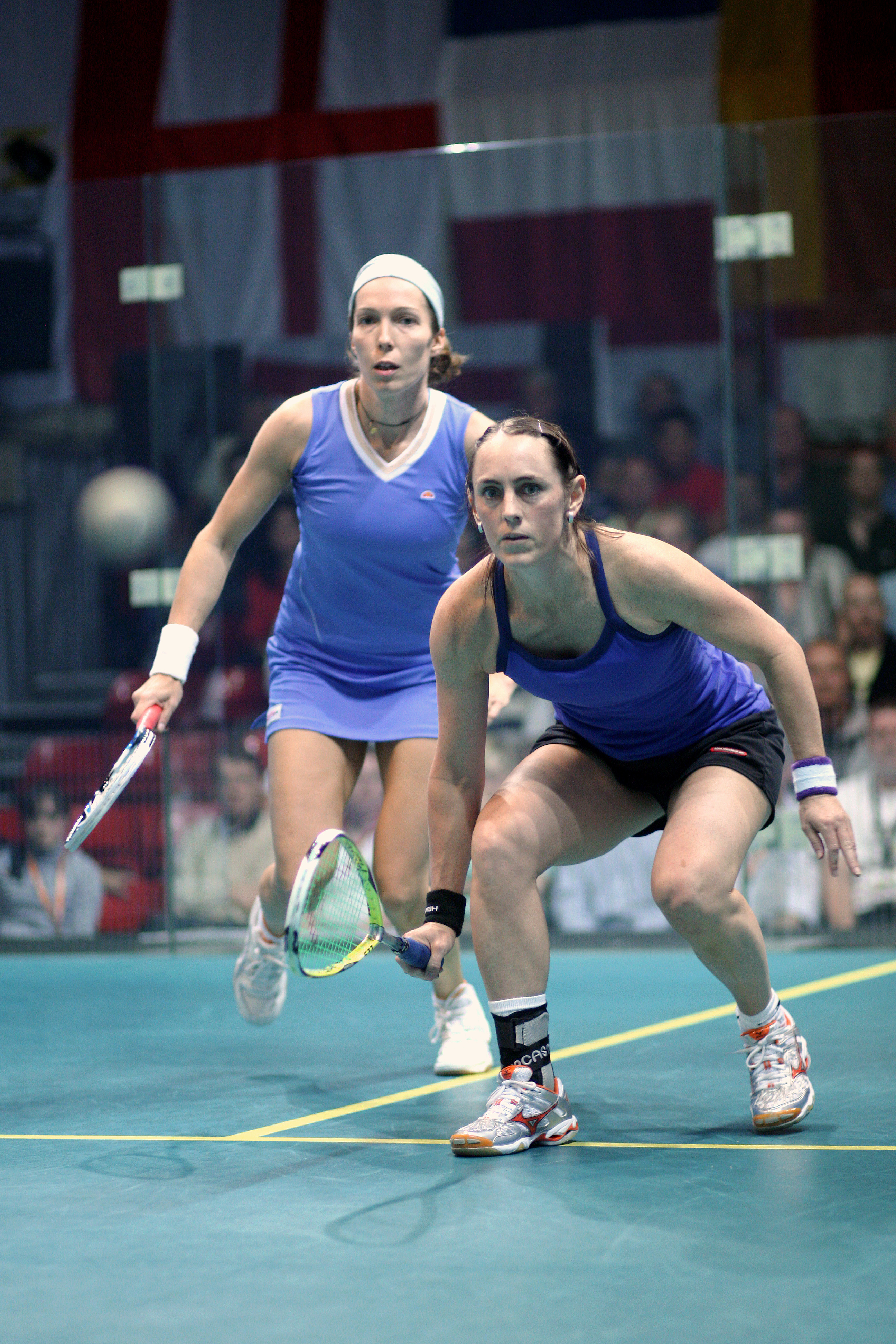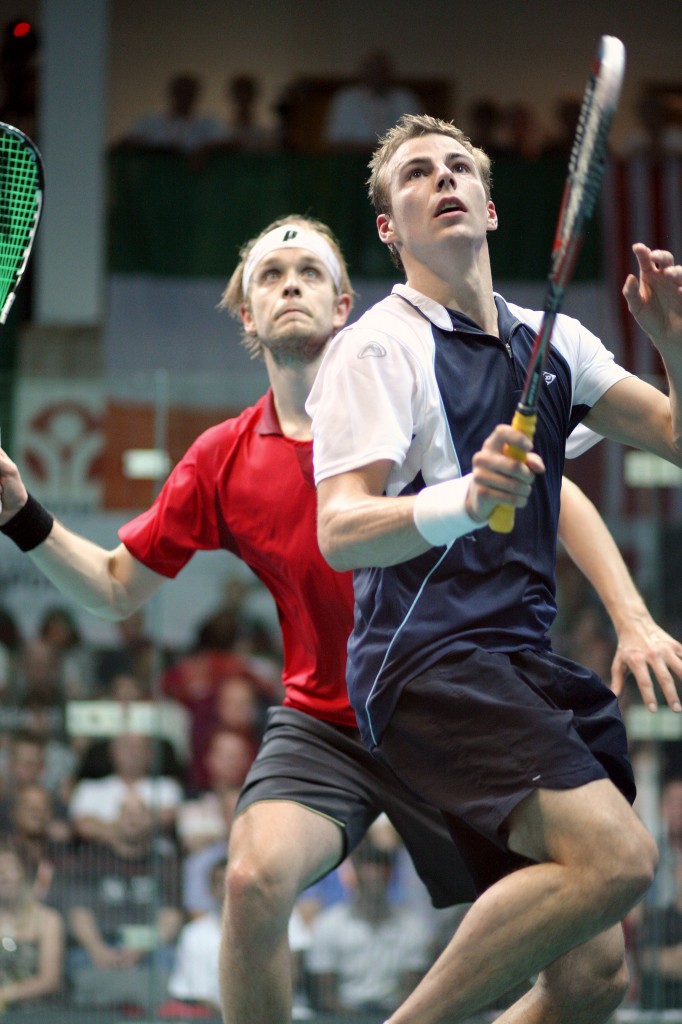
By Richard Eaton
Photos by Steve Line/SquashPics.com
It’s 87 years old and it almost died. But the old tourney, the parent of the international game, and the talismanic event on the PSA Tour even in its more recent ailing condition, was given a kiss of life and injected with fresh hopes for another, more vital future.
That piece of good news, with its implications for a better commercial future, plus an account of the horse trading and head-banging which made it possible, were the top stories of the 2009 British Open—the one that might have gone under.
That assessment is no disrespect to Madeline Perry, the courageous Irish woman who recovered from a mugging attack two years ago and now scored the finest win of her career before going on to reach the British Open final for the first time.
Nor is it an under-estimation of the athletic beauty and artistic deftness of Rachael Grinham, who made a case to be included among the pantheon of all-time greats by winning the title for a fourth time; nor of the wonderful epic with which Nick Matthew and James Willstrop, contesting the first men’s final between two Englishmen for more than 70 years, finished the tournament.
Nor is it intended to overlook the mysteries surrounding David’s stunning defeat from match point up in the third game against Perry, or the domino-effect disappearance of the stars—Natalie Grainger, Natalie Grinham and Ramy Ashour before the British Open began, Amr Shabana, Greg Gaultier, Karim Darwish, and Thierry Lincou, as well as David, during it—which brought daily dramas in Manchester.
It’s just that the tournament’s rescue had major implications for creating a worldwide promotable image and for how the women within the sport are viewed. Not only did it suffer a substantial commercial loss despite the £75,000 injected by Manchester City Council, but it almost brought a demoralizing 40 percent reduction in the women’s prize fund until belated initiatives bolstered it.
Much of the bail out was done by the iSPORT group, which still hopes one day to make the British Open again the world’s leading tournament, but was now “flying in the face of a worldwide recession,” to keep it alive, according to its chief executive Paul Walters.
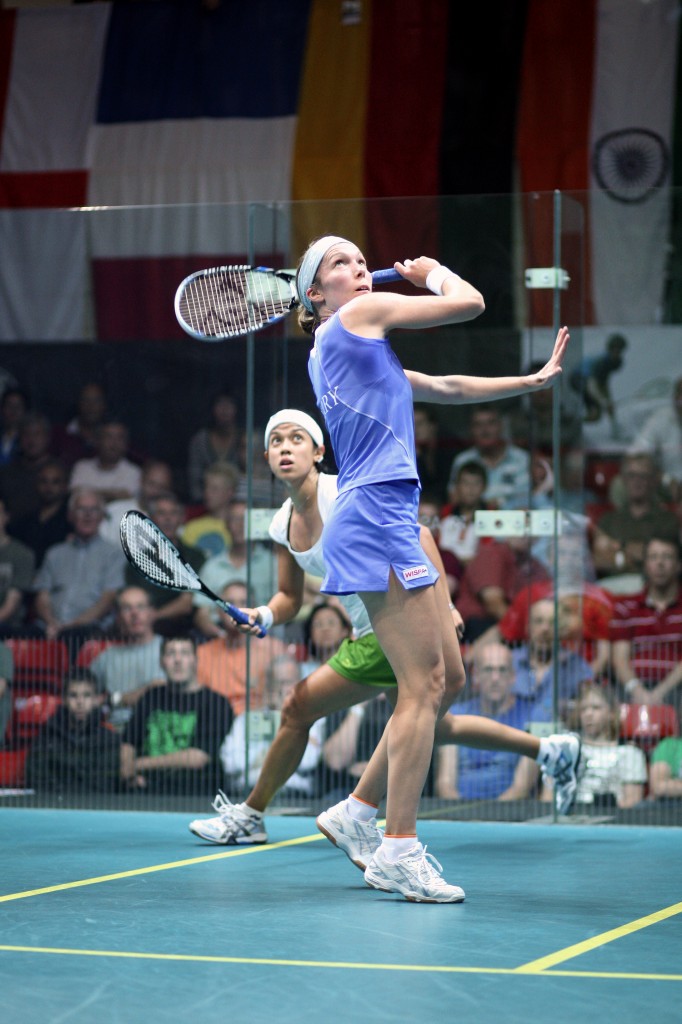
Natalie Grinham nevertheless gave it a miss, preferring to save her energies for the World Open 10 days later, which was directed by her husband Tommy Berden in her adopted home city of Amsterdam.
But the presence of Nicol David brought a collective sigh of relief. The lady with the title of Datuk, the recipient of an Order of Merit from the Malaysian king, and the heroine of most of Asia, did more than anyone to guarantee the status of the tournament.
David pronounced her support for the British Open but conspicuously kept her own counsel about behind-the-scenes events which almost saw the women’s prize money lowered to $30,000—about a third of the men’s.
The Women’s International Squash Players Association indicated its displeasure, and last-ditch negotiations were required before further financial input came, firstly from England Squash, and then from extra iSPORT investment. Altogether that raised the women’s total to the previous year’s level of $53,000.
This was still significantly short of the men’s prize fund, which had actually been increased by $10,000 to $92,000, a decision apparently taken to prevent the British Open losing its Super Series status on the PSA tour.
This caused anger, some of it articulated by David’s coach, Liz Irving, who said: “You can’t say ‘listen girls we are struggling, we have to drop your prize money but the men’s stays the same.’ The women players would not support it.
“You would like to think that the game has progressed from 20 years ago. But when you hear this, you think it hasn’t done as much as you would like. It’s great the British Open is going ahead, but people who want to watch both events…It’s not just about the men. I’m convinced about that.”
Her conviction embraces a wider concern that a lack of gender equality might be seen to contradict the values of the Olympic movement, which squash still has ambitions to join.
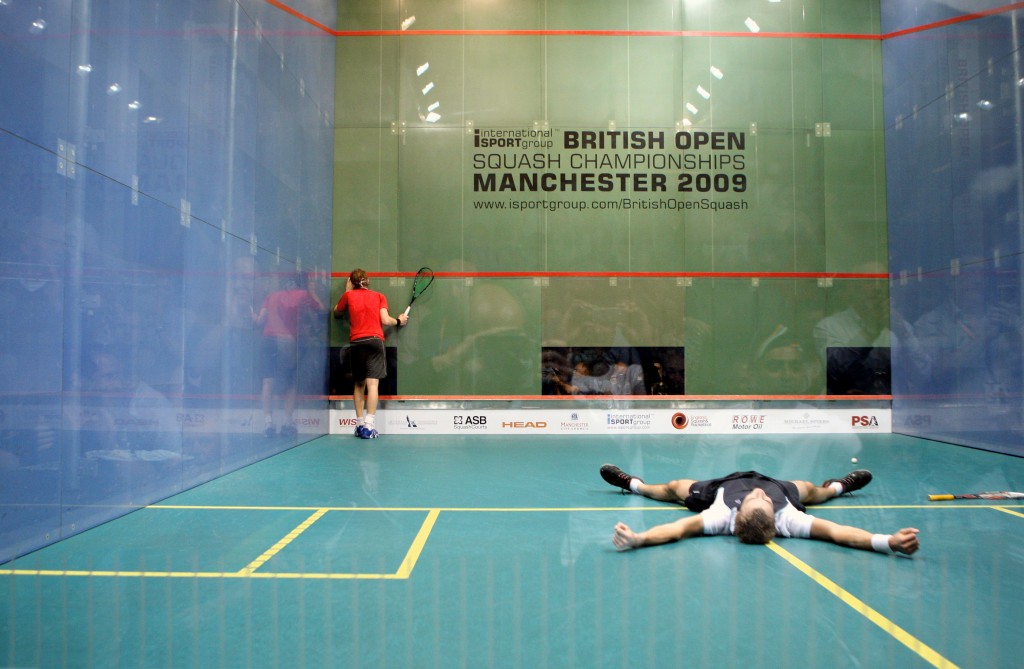
“Actually the women are not even asking for equal prize money,” Irving pointed out. “About 70 percent is fine; 30 or 40 percent is not. I don’t know how anyone could have supported that.”
Meanwhile Walters admitted that hard times had forced iSPORT to consider “radical” choices, but said he believed the British Open would survive the downturn without damage to its reputation.
“The economic landscape over the past 12 months has changed dramatically and affected all sports at all levels,” he said. “Thus we have continued to work very hard to deliver an event worthy of the championships’ unrivaled heritage.”
But it didn’t produce the finals that had been expected, or perhaps wanted. David was “all over the place,” in Irving’s words, in her quarterfinal against Perry, who determinedly and admirably took her chance.
Errors flowed from the defending champion’s racket, which many people attributed to the change of rhythm, pace, and vision involved in moving the tournament from the conventional plaster courts to a glass show court in the third round.
But David didn’t seem mentally right either. A lengthy heart-to-heart with Irving followed her defeat, at the end of which the reverse was attributed in part to life’s emotional ups and downs.

“At the end of the day she’s still only 26,” Irving said. “You can forget so easily she is still a bit of a kid. There are still learning years ahead.”
It was hard to interpret exactly what was meant. One wondered if there had been an emotional crisis in David’s life, or whether this was another phase during which her self-imposed exile in The Netherlands and the weight of the permanent responsibility she carries had been affecting her.
Certainly her parents were a little more in evidence and certainly she continues to suffer with the colossal weight of expectations of an ambitiously developing country—even when she appears to deal well with it.
There have also been signs that Natalie Grinham and Natalie Grainger are capitalizing on David’s preference for being a counter-puncher rather than an initiative-taker, and are closing the gap on her. She may have been pressured by that too.
But there were even more unpredictable emotions during the men’s final. It finished with Willstrop burying his face in the front wall after failing to convert a match point and losing 8-11, 11-8, 7-11, 11-3, 12-10. It was a nightmarish repeat of the match points which, memorably, he had been unable to convert against David Palmer in last year’s final.
Simultaneously Matthew went rolling backwards and lay star-shaped, overwhelmed to have repeated his British Open triumph of 2006. He was less thrilled afterwards when he learned that his fellow Yorkshireman made some very public allegations—that he had been “disrespectful”—and that Willstrop claimed to be upset by Matthew’s remarks about his father-coach, Malcolm Willstrop, saying they “hurt.”
Matthew replied that Willstrop did not realize he had not been clearing the ball as well as he did before his ankle surgery, something which Matthew reckoned had been hindering his chances of taking control. Allegedly Matthew also described Willstrop as “El Hindi,” a talented player who has sometimes been criticized for this kind of fault.
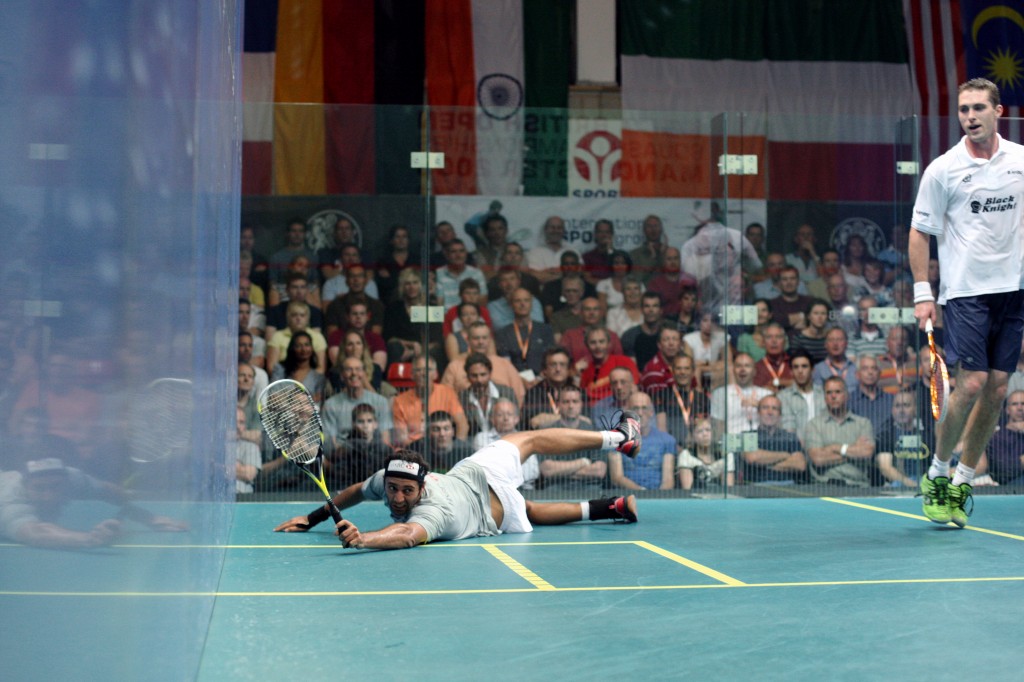
The following morning the bad mood had not blown away. Instead Willstrop’s opinions were the same in the cool of the day as in the heat of the battle, and he was very ready to repeat them to the media.
It is hard to see this animosity disappearing quickly, something which created a potential management problem three weeks later when Matthew and Willstrop lined up as teammates for England’s defense of the world team title in Odense, Denmark. That was a pity, for it had been a British Open final of adrenalin-fuelled entertainment and wonderful contrasts, confirming that the product which professional squash offers today has probably never been better.
Matthew, who came through in the half in which Peter Barker had beaten the second-seeded Greg Gaultier, showed that he has added variety and versatility to his game since coming back from a career-threatening shoulder injury.
Willstrop, who beat Darwish and Shabana en route to the final, was a brilliant playmaker and showed immense courage in recovering from 2-6 down in the decider to reach match ball at 10-9.
The highly-charged moment in which Matthew saved it, with an electric movement to the ball which made possible a brilliantly weighted backhand kill, and in which Willstrop’s last heroic lunge failed to reach it, is one they will probably always remember. For them at least the British Open still generates the passion it used to.


